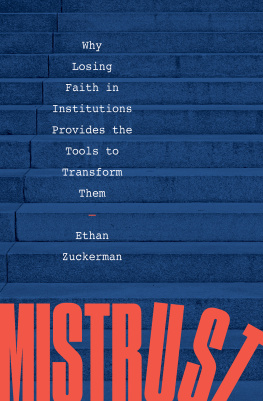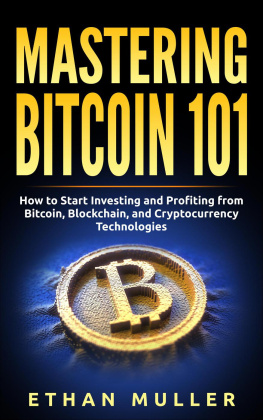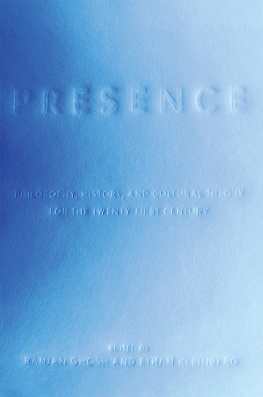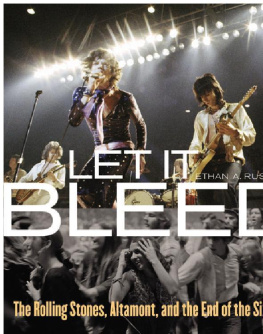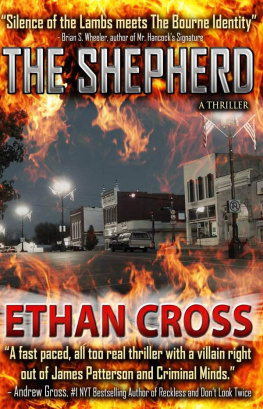Ethan Zuckerman - Mistrust
Here you can read online Ethan Zuckerman - Mistrust full text of the book (entire story) in english for free. Download pdf and epub, get meaning, cover and reviews about this ebook. year: 2021, publisher: W. W. Norton & Company, genre: Politics. Description of the work, (preface) as well as reviews are available. Best literature library LitArk.com created for fans of good reading and offers a wide selection of genres:
Romance novel
Science fiction
Adventure
Detective
Science
History
Home and family
Prose
Art
Politics
Computer
Non-fiction
Religion
Business
Children
Humor
Choose a favorite category and find really read worthwhile books. Enjoy immersion in the world of imagination, feel the emotions of the characters or learn something new for yourself, make an fascinating discovery.
- Book:Mistrust
- Author:
- Publisher:W. W. Norton & Company
- Genre:
- Year:2021
- Rating:3 / 5
- Favourites:Add to favourites
- Your mark:
- 60
- 1
- 2
- 3
- 4
- 5
Mistrust: summary, description and annotation
We offer to read an annotation, description, summary or preface (depends on what the author of the book "Mistrust" wrote himself). If you haven't found the necessary information about the book — write in the comments, we will try to find it.
Mistrust — read online for free the complete book (whole text) full work
Below is the text of the book, divided by pages. System saving the place of the last page read, allows you to conveniently read the book "Mistrust" online for free, without having to search again every time where you left off. Put a bookmark, and you can go to the page where you finished reading at any time.
Font size:
Interval:
Bookmark:

MISTRUST
Why Losing Faith in
Institutions Provides the
Tools to Transform Them
ETHAN ZUCKERMAN

W.W. NORTON & COMPANY
Independent Publishers Since 1923
Mistrust
IN SHEFFIELD, MASSACHUSETTS, THIRTY MILES SOUTH OF where I live, a stone marker stands at the edge of a corn field. Its about three feet high, neatly maintained, but visited mostly by through-hikers who pass by on the nearby Appalachian Trail.
The marker commemorates the final battle of Shayss Rebellion, the first major instance of domestic insurrection in the postrevolutionary United States. When farmers from western Massachusetts returned home after fighting for independence from Britain, they often found themselves in dire financial straits. Despite promises of pay for their military service, most veterans went unrewarded, and taxes levied by the state government led farmers to lose their only asset, their farmland. Daniel Shays, a former captain of the Fifth Massachusetts regiment in the Continental Army, led protests for debt relief, helping shut down courthouses throughout the western part of the state.
Militarily, Shayss Rebellion was a brief, sloppy, and ultimately unsuccessful affair. Shays and two other commanders attempted to converge their forces on the federal armory in Springfield, hoping to seize a cache of weapons there. But their communications were intercepted, and when the rebels arrived, a private militia paid for by wealthy supporters of the governor in Boston quickly
Despite the almost total lack of military glory for its participants, Shayss Rebellion had an enormous effect on early America. Alexander Hamilton and other Federalists considered the inability of the young nation to defend itself against domestic insurrection to be proof that the United States needed a strong central government, capable of raising an army and maintaining domestic order. Predictably, Thomas Jefferson disagreed. In a letter to James Madison, dated January 30, 1787, he opined, I hold it that a little rebellion now and then is a good thing, and as necessary in the political world as storms in the physical.
This was easy for Jefferson to sayhe was in France, as ambassador to Americas most important ally. Furthermore, his prosperous farm in Monticello was almost five hundred miles away from Shays and his angry men. Other leaders of the American Revolution were deeply panicked about the rebellion, and only three months after Shays retreated through Sheffield, the Constitutional Convention began its work in Philadelphia. The recent conflict was so much on the minds of the framers that the Federalists and other Constitution supporters were commonly referred to as Washingtonites and those in opposition as Shayesites.
But while Hamiltons arguments won the day, Jeffersons words still resonate. A nation formed through a revolution must recognize that rebellion is an essential aspect of its character and its destiny. Jeffersons letter to Madison continued: Unsuccessful rebellions indeed generally establish the encroachments on the rights of the
Perhaps reflecting Jeffersons idea, punishment of the Shaysites was surprisingly moderate. More than four thousand participants in the rebellion were given amnesty, and while eighteen ringleaders were convicted and sentenced to death, most were later pardoned or had their sentences commuted. The only two who were hanged for rebellion had also been convicted of looting. Shays himself was pardoned in 1788 and returned from the Vermont woods to Massachusetts. In his old age, he received a pension from the federal government for his military service.
From its inception, then, America has experienced a tension between institutions and insurrection, between the need for a carefully crafted structure designed to separate and counterbalance governmental powers and the need to respond to encroachments on the rights of the people in forms that may involve protest, dissent, and ultimately rebellion. The United States has survived as the first modern democracy because its institutions have been resilient to insurrection, a flexibility exemplified by the fact that only three years after our founding document was ratified, it was significantly amended by a bill of rights.
Institutions maintain their resilience by being flexible and capable of change. With age, though, they calcify and become brittle. The danger is that institutions that once bent to accommodate insurrectionism in their youth may snap under similar pressure in their old age.
I write this book at a moment when it feels like America might snap. A global pandemic has revealed the fragility of our institutions and shown the nation to be woefully underprepared for a significant crisis. President Donald Trump has vacillated between disclaiming responsibility and claiming absolute power. But even before the United States began struggling with COVID-19, institutions like Congress and the Supreme Court often seemed paralyzed. Political partisanship had morphed into tribalism, and debates over the issues of the day had come to feel less like differences of opinion than like disagreements about the nature of reality. Beyond concerns about the strengths and weaknesses of our government, civility, trust, and a collective sense of purpose seem absent. A broad swath of institutionsthe press, the corporations, and the digital platformsboth connect and divide us, but none of them seems up to the task of holding us together.
Its usefuland scaryto remember that the United States is not alone in this moment of existential crisis. Many people in Britain reacted to Brexit with a mix of disbelief and denial, a refusal to accept that their neighbors would vote to leave a community that has kept Europe at peace for seventy years. Some Britons initially understood Brexit as the result of political machinations and deceptive advertising that could be reversed with a do-over in the polls, but that view has slowly given way to the disconcerting realization that many Britons genuinely do support a rebellion against the European Unionand against politics as usualeven if the implications of that path forward are murky in the extreme.
The ascent of strongmen in India, Brazil, Hungary, and Poland reminds us that democracy is fragile, easily crushed. The illiberal democracies that have taken over in these countries no longer pretend to seek dialogue or compromise with their political opponents. Theyve embraced tribalism on a national scale and see their opponents not as fellow citizens but as enemies of the state. Ominously, their examples warn free people elsewhere that the fall from a liberal democracy to an illiberal one can be swift and unexpected.
Despite its connections to the current political moment, this book was years in the making. When I began my research, Donald Trump was a reality television star, a weird relic of the 1980s whod managed to gain marginal relevance by promoting an outlandish conspiracy theory about Barack Obamas birth certificate. But by the time I submitted the manuscript to my publisher, Trump was the forty-fifth president of the United States, three years into a surreally turbulent presidential term. Despite being under investigation for almost his entire presidency and surviving impeachment, his popularity has been surprisingly persistent, with roughly 40 percent of Americans approving of his leadership.
But this is not a book about Donald Trump. Nor is it a book about Vladimir Putin, Recep Tayyip Erdogan, Viktor Orbn, Rodrigo Duterte, or any number of other ethnonationalist leaders emerging around the world. I share the concerns raised by former US secretary of state Madeleine Albright that the recent turn toward authoritarianism and ethnonationalism uncomfortably evokes the rise of fascism in the middle of the past century. But thats not the warning I want to offer.
Next pageFont size:
Interval:
Bookmark:
Similar books «Mistrust»
Look at similar books to Mistrust. We have selected literature similar in name and meaning in the hope of providing readers with more options to find new, interesting, not yet read works.
Discussion, reviews of the book Mistrust and just readers' own opinions. Leave your comments, write what you think about the work, its meaning or the main characters. Specify what exactly you liked and what you didn't like, and why you think so.

